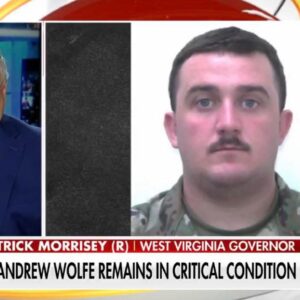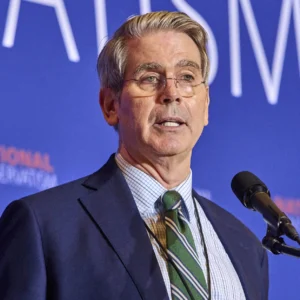Introduction: A Nation in Shock
The sudden and violent death of Charlie Kirk, the 31-year-old founder of Turning Point USA, has left a nation stunned. On September 10, during what should have been another fiery campus appearance at Utah Valley University, Kirk’s life was cut short by a single bullet. In the days since, grief has swept across political lines, with tributes pouring in from presidents, world leaders, family, and millions of ordinary Americans who followed his work.
Kirk’s assassination is not just the story of a young activist’s life ending too soon; it is also a story of what he represented in America’s polarized climate, and the questions his death raises about free speech, safety, and political violence.
An Outpouring of Grief
Within minutes of confirmation of Kirk’s death, tributes began to flood in from across the country. Conservative circles were especially shaken, as Kirk had long been regarded as one of the movement’s most energetic and effective youth leaders. But voices of sympathy also came from unexpected corners, including political opponents who recognized the tragedy of a young life lost.
President Donald Trump, a longtime ally and personal friend of Kirk, posted an emotional statement on Truth Social:
“Charlie was legendary. No one had the heart, passion, and courage to reach young Americans the way he did. He inspired millions and changed the conservative movement forever.”
The Trump family followed with their own expressions of grief. Eric Trump announced that all Trump properties nationwide would fly flags at half-staff in Kirk’s honor. Melania Trump shared a poignant reflection, saying:
“The silence in Erika’s and her children’s lives is heartbreaking. My heart breaks for Charlie’s young family.”
Donald Trump Jr., who had long described Kirk as a “brother,” vowed to continue his mission:
“Charlie was like my little brother. I will carry on his fight for America and for the youth he dedicated his life to. We won’t let his legacy be forgotten.”
Bipartisan Condemnation of Violence
What set the reaction apart was not only the depth of grief on the right, but the speed with which leaders from across the aisle also responded. Former Presidents Barack Obama and Joe Biden both issued statements condemning political violence and offering condolences.
“This kind of despicable violence has no place in our democracy. Michelle and I are praying tonight for Erika, for Charlie’s children, and for all those who loved him.”
Biden echoed those words in a statement from the White House, urging unity and reflection:
“Jill and I are heartbroken at the loss of Charlie Kirk. While we often disagreed with his views, violence cannot be the answer. America must recommit itself to civility, dialogue, and the sanctity of life.”
The Day of the Shooting
September 10 began like so many of Kirk’s speaking engagements. Students at Utah Valley University crowded into a courtyard under a white canopy, eager for the back-and-forth Q&A sessions that had made Kirk both famous and controversial. Hundreds of students and community members filled the space, some supporters, others protesters ready to challenge him.
At approximately 12:20 p.m., the ordinary rhythm of the event was shattered. Witnesses reported hearing a single crack that echoed through the courtyard. At first, some thought it was a firework or equipment malfunction. Then screams erupted. Kirk staggered, clutching his neck, before collapsing as staff and students rushed to his aid.
Panic followed. Students scrambled for cover, unsure if more shots would come. Teachers and campus police shouted for calm, while others desperately called 911. Within minutes, Kirk was carried to a waiting vehicle and rushed to the hospital.
By afternoon, former President Trump had confirmed what many feared: Charlie Kirk had succumbed to his injuries.
The Investigation
Law enforcement moved quickly to secure the campus, locking down buildings and searching rooftops. Early reports suggested the shot had been fired from the Losee Center, about 200 yards from where Kirk stood. Security camera footage appeared to show a figure in dark clothing carrying a backpack near the building.
The FBI, ATF, and local police soon took charge of the investigation. Initial reports that a suspect had been detained were later walked back, deepening confusion. As of September 11, no suspect was in custody, though the FBI released a photo of a “person of interest” and appealed for public assistance.
Utah Department of Public Safety Commissioner Beau Mason described the incident as a “targeted attack.” He emphasized the complexity of the crime scene, calling it “a very large area” requiring extensive processing.
America Responds
The reactions to Kirk’s assassination reflected not only grief but also the nation’s fraught political climate.
-
Vice President J.D. Vance wrote: “Say a prayer for Charlie Kirk, a genuinely good guy and a young father. America has lost a great one.”
-
Utah Senator Mike Lee told constituents: “Please join me in praying for Charlie and for the students who witnessed this horror.”
-
California Governor Gavin Newsom, a frequent critic of Kirk’s politics, nevertheless condemned the killing as “disgusting, vile, and reprehensible.”
-
Religious leaders also weighed in, with Secretary of War Pete Hegseth posting: “Prayers for Charlie Kirk. An incredible Christian, American, and human being. May the healing hand of Jesus Christ be upon him.”
The bipartisan tone of many tributes suggested that, despite ideological divides, Kirk’s assassination had touched a deep nerve about the dangers of political violence.
A Life and Legacy Interrupted
Charlie Kirk’s rise had been nothing short of meteoric. Born in 1994 in Illinois, he co-founded Turning Point USA in 2012 at just 18 years old. The organization, which sought to empower conservative students on college campuses, quickly grew into a national force, boasting hundreds of chapters and millions of followers online.
Kirk’s confrontational style, sharp social media presence, and loyalty to Donald Trump made him both admired and despised. To supporters, he was fearless — unafraid to challenge progressive orthodoxy and willing to debate anyone. To critics, he was divisive, prone to spreading misinformation, and a symbol of America’s culture wars.
Yet beyond politics, Kirk was also a husband and father. He married Erika Frantzve in 2021. Together they welcomed two children: a daughter in 2022 and a son in 2024. Friends and family say that fatherhood reshaped his priorities, grounding him in faith and family even as he continued his public battles.
Trump’s Eulogy: “A Martyr”
In a televised statement, Donald Trump elevated Kirk’s memory, describing him as a “martyr for the conservative cause.”
“This is a dark moment in American history. Charlie was a warrior, a patriot, and a dear friend. He gave his life for his beliefs, and for that, his name will live forever in the hearts of those who love this country.”
The language was striking — framing Kirk’s death not just as a personal tragedy, but as a political turning point. Many believe Trump will use Kirk’s death to galvanize conservative voters heading into the 2026 midterms.
The Larger Picture: Political Violence in America
Kirk’s assassination is part of a troubling trend. In recent years, political violence has escalated: from the 2017 congressional baseball shooting that nearly killed Rep. Steve Scalise, to the 2022 attack on Paul Pelosi, to repeated threats against judges, lawmakers, and activists.
That Kirk was killed on a college campus — the very arena where he built his reputation — only heightens the symbolism. Universities, meant to be bastions of free debate, are now forced to confront the possibility that hosting polarizing figures carries mortal risks.
Conclusion: A Legacy That Endures
As the investigation continues and the nation grieves, Charlie Kirk’s legacy remains both contested and undeniable. He was a son, a husband, a father, and a political firebrand who reshaped youth activism in America. His life was defined by confrontation, conviction, and controversy. His death, tragically, may be remembered as a turning point in how the nation views political violence.
Tributes will continue to pour in. Vigils are being planned by Turning Point USA chapters across the country. Flags fly at half-staff at Trump properties. And on social media, millions share messages of grief, disbelief, and anger.
For Erika, their two children, and his countless followers, the silence left by Charlie Kirk’s absence will never fully be filled. But his mission — to empower and embolden a generation — is certain to continue, carried forward by those who saw in him not just a political leader, but a symbol of defiance and hope.
Charlie Kirk, 1994–2025. Rest in peace.





